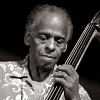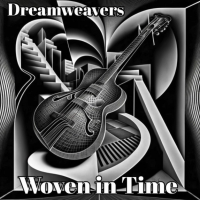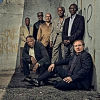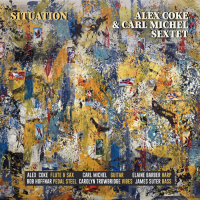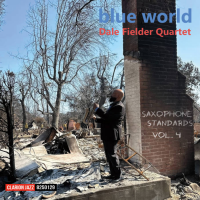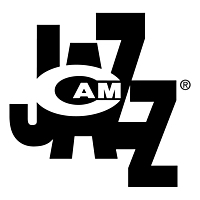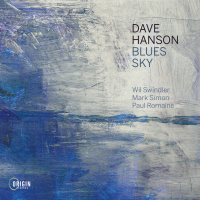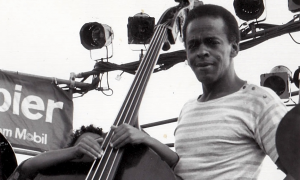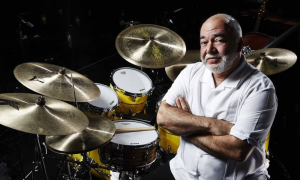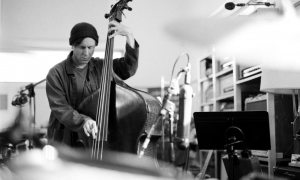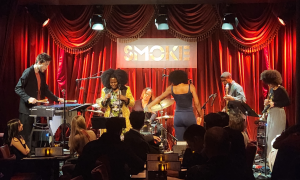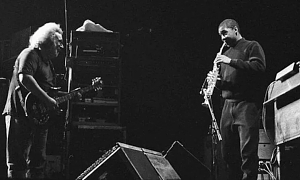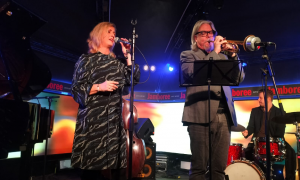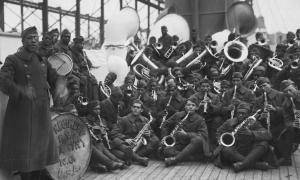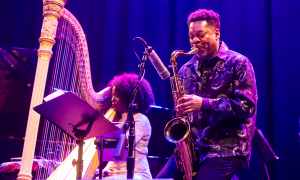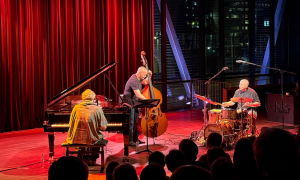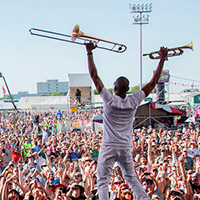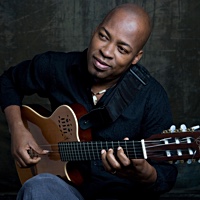Home » Jazz Articles » Interview » The Changing Times of Cecil McBee
The Changing Times of Cecil McBee
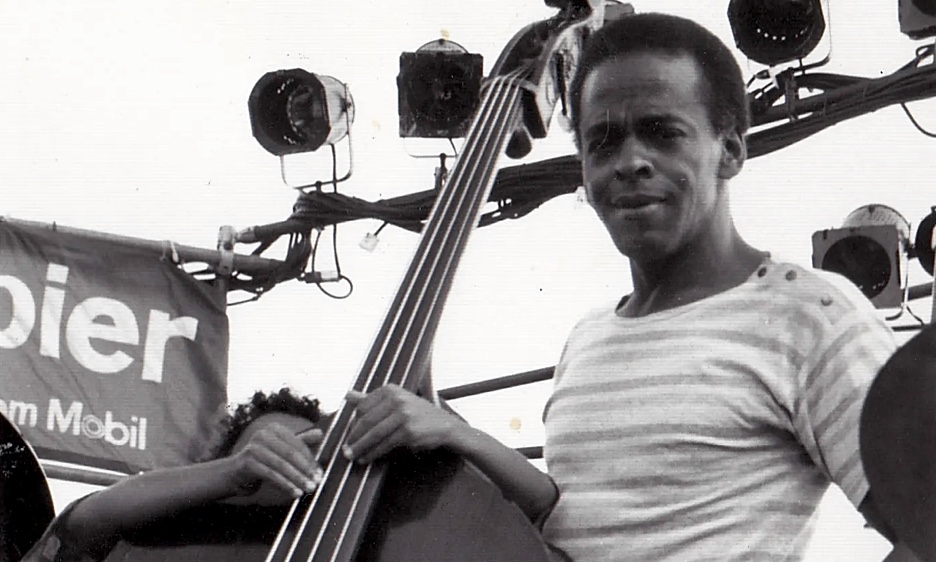
We spend all our time running after the dollar.
—Cecil McBee
The concerts included the entire Thad Jones-Mel Lewis big band, Elvin Jones trio, Brignola's quartet and many more. Unfortunately, it appears that any documentation of the event has disappeared.
The following interview with the author was originally published in Transition, a monthly arts magazine of the period (published by the author).
All About Jazz/Transition: How do European audiences compare with American ones?
Cecil McBee: European audiences are more in tune with America than Americans are. Being outside let's you see things just a little more clearly than being here.
AAJ: Do you think it might also be a case of knowledge? Do you have to know about jazz to appreciate it?
CM: No. You don't have to know that much. You just have to be kind of spiritually informed to dig it. I think because of the recent sufferings that Europeans had, that they are a little bit more in tune with it themselves. Here we spend all our time running after the dollar, and things 1 don't ever want to talk about.
AAJ: You said once that you talk by playing. When you play would you say you are talking about the social conditions of the U.S. or at least a result of them?
CM: They are a result of my existence.
AAJ: Do you think you'd play differently if you were born in Europe?
CM: Sure, because I'd be a European citizen and would be subjected to their environment
AAJ: Do you think you would have been a classical musician?
CM: I can't even see that because I'm so concerned musically with where I am now.
AAJ: How would you compare playing with Charles Lloyd with playing with Pharoah Sanders?
CM: 1 played with Charles Lloyd 4 years ago and like this is 1971. What we played then was expressing what was happening then, and which was another level of life. I can't even compare it because now it's an oppressive thing; there are a lot of things in life that I want to brush away.
AAJ: In other words your music of those days wouldn't fit the you of today.
CM: It was cool then, though. I played THEN what was happening THEN. But, that's a lot different than what's happening now.
AAJ: What would you say about some of the older musicians who are playing now what they were playing then? Or don't you think that's a valid statement?
CM: I don't quite understand.
AAJ: Like Louis Armstrong. Dо you think he's worth listening to? Do you think he expresses yesterday or today?
CM: Actually I can't even answer that. I define that; or think all you have to do is listen to it. I think we get too caught up in comparing and defining because to me that separates. I think that puts each thing into a category. Whereas what's happening is from each individual group. So what happens is you get into jazz, or bebop or old styles and immediately you're supposed to listen to this particular thing which isn't cool. Just listen.
AAJ: Do you feel this also goes for playing? Would you feel as comfortable playing with someone of an older school as someone from a newer one? Could you ignore the fact that they are from an older era?
CM: Let's just say l'd really dig being there. If it's music it's cool, I don't care what it is.
AAJ: Would you say that your playing could be emotionally described as anger or love or hate?
CM: I don't know what it is.
AAJ: In other words it's undefinable?
CM: I don't believe in defining things.
AAJ: Why do you think that jazz isn't as popular as rock?
CM: Popular to whom?
AAJ: To the Americans. Or even the world because there aren't any jazz musicians that can draw the crowds that the Beatles could. Why?
CM: Why is it more popular?
AAJ: Yeah.
CM: When you consider the word popularity you define it by Western English terms, and disagree who popularity comes from. This is because popularity comes from some control that sets it up.
AAJ: Where is this control?
CM: The structure itself. The people who control the production of the music.
AAJ: You're not talking about the musicians themselves.
CM: No. Just the people that control it.
And with those ominous words he left.
Tags
Interview
Rob Rosenblum
United States
New York
Albany
Nick Brignola
charles lloyd
Pharoah Sanders
Louis Armstrong
Comments
PREVIOUS / NEXT
Cecil McBee Concerts
Support All About Jazz
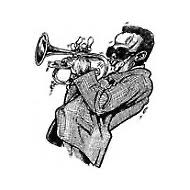 All About Jazz has been a pillar of jazz since 1995, championing it as an art form and, more importantly, supporting the musicians who make it. Our enduring commitment has made "AAJ" one of the most culturally important websites of its kind, read by hundreds of thousands of fans, musicians and industry figures every month.
All About Jazz has been a pillar of jazz since 1995, championing it as an art form and, more importantly, supporting the musicians who make it. Our enduring commitment has made "AAJ" one of the most culturally important websites of its kind, read by hundreds of thousands of fans, musicians and industry figures every month.


